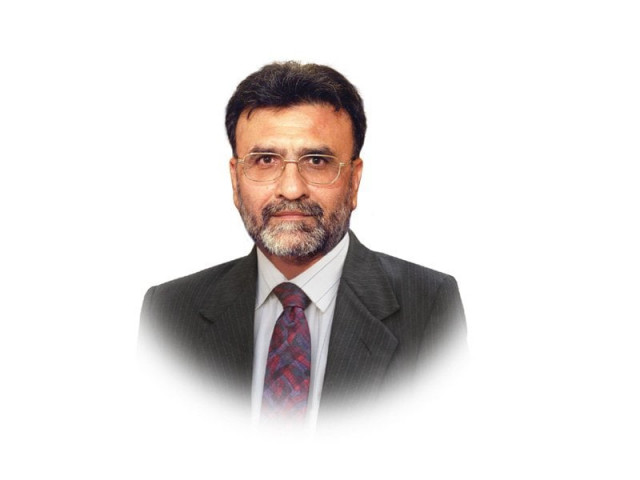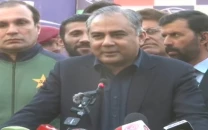Disappointment after an unnecessary hype
The so-called national security policy has failed to prescribe anything immediately relevant to the ‘here and now.’

Technically speaking, the national security policy is presumed to have been “formally laid” before an elected house, but its copies were not available even to honorable legislators until my writing this column Wednesday evening. The document, our eloquent interior minister kept feeling so good about, has essentially been drafted by a specially created cell of researchers working for the Army-run National Defence University. Some academic type ministers like Sartaj Aziz and Zahid Hamid did review the same but without adding anything substantive to it. A seasoned bureaucrat with many years’ experience in district management, Khawaja Zaheer, scanned the same document for the Prime Minister and that’s about it. The tone and tenor of the proposed policy remain predominantly bureaucratic as the draft lacks the vibrant political input.
The so-called national security policy has failed to prescribe anything immediately relevant to the ‘here and now.’ It primarily is a proposed draft for a long-term plan. It does intend to empower and energize the National Counter-Terrorism Authority (NACTA) as the “prime body for dealing with all issues related to terrorism.” But the federal government will only contribute Rs4 billion to furnish the new look for it. The rest of the estimated sum of around Rs28 billion would come from the provincial governments. I have serious doubts that all provincial governments, especially the one in the K-P, would want to spend money from their kitty to build and augment an office that seems in exclusive command and control of the federal government.
Chaudhry Nisar Ali Khan, reliable sources revealed, also took time to realize that most politicians and especially the establishment would hardly digest the idea of his ending up as the most powerful security czar of Pakistan. Only two weeks ago, therefore, he himself promoted the idea that the Prime Minister should head NACTA and instead of working under the interior ministry, the same should operate as an “autonomous body of hardcore professionals.”
The much-trumpeted national security policy, in short, remains a work in progress. The national assembly will start discussing the same from Monday evening. Meantime, the prime minister would hold extensive brainstorming sessions with various nominees of the political parties. He also has to walk extra miles to take all provincial governments on board.
Until then, ‘the policy’ only seems to go for selective aerial strikes on ‘hideouts,’ in reaction to some deadly incidents in some cities or audacious attacks on security forces. The door for dialogue is yet not shut and it can be resumed once ‘they’ announced unilateral ceasefire and displayed an effective intent of maintaining it.
The interior minister kept stressing that recent retaliatory strikes at ‘hideouts’ reflected a fundamental “policy shift” but remained reluctant to explain as to how. During the cabinet meeting of Tuesday, many ministers from Punjab had worriedly expressed fears that like the government, ‘the other side’ might also have set some “red lines” and there can be stunning “retaliatory strikes” in some major cities of this province as well, if the government seemed crossing them.
The interior minister preferred to ignore that very relevant aspect of the big picture during his lengthy speech. Even the Prime Minister who was scheduled to fly off to Tarbela was forced to send not one but two chits to remind him of this engagement. Nisar being Nisar went on and on, however, and also sounded feeling too hurt. He strongly believed that most opposition members and the media in general never appreciated the midnight oil he had burnt to find ways of coming out of a messy situation that the previous governments made insurmountable with their confused and half-hearted policies.
As if to assuage his wounded heart, the prime minister acknowledged and praised his “zealous and focused efforts” during his brief speech. Doing the same, however, he also named Irfan Siddiqui, the special assistant on national affairs, who heads the government committee for the dialogue. By naming Siddiqui, the prime minister rather subtly pricked the balloon that the interior minister kept dandling to project himself as the one and only “focal person” who singlehandedly deals with all issues related to national security. No wonder, some ministers, known for being loudly envious and bitter about Chaudhry Nisar Ali Khan these days, were found visibly savoring the sadistic pleasure.
Published in The Express Tribune, February 27th, 2014.



















COMMENTS
Comments are moderated and generally will be posted if they are on-topic and not abusive.
For more information, please see our Comments FAQ